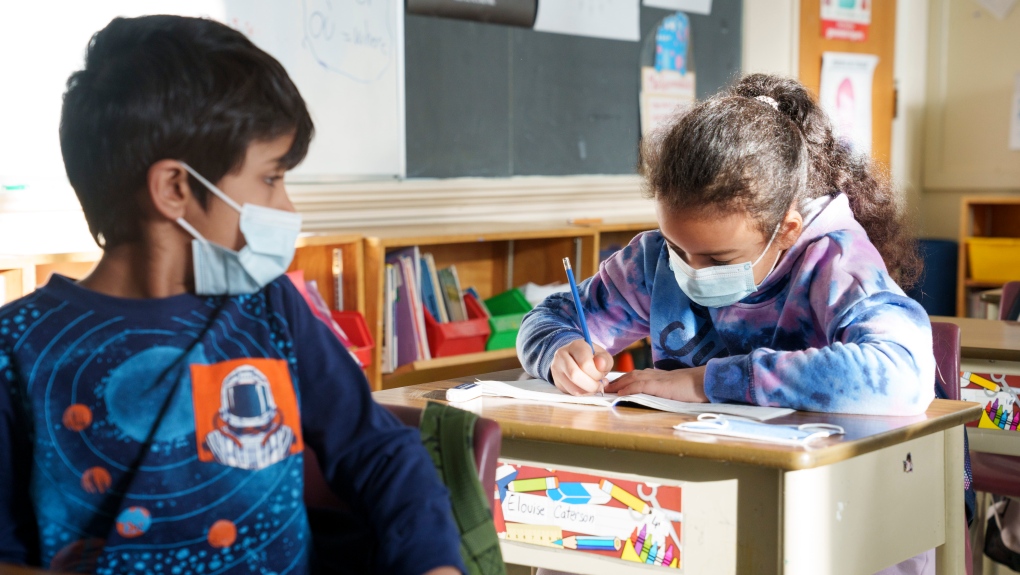Yommie
Elite Member
- Oct 2, 2013
- 63,855
- 37,179
- Country of Origin

- Country of Residence

- Thread starter
- #1,891
This diet may reduce Covid-19 risk, new research suggests
By Kristen Rogers, CNN
5 minute read
Updated 3:50 PM EDT, Wed August 21, 2024
CNN —
A healthy diet has long been hailed by some experts as one potentially important factor influencing the risk of Covid-19, or how bad someone’s case gets.
But a team of researchers in Indonesia looked into how a specific lifestyle might affect these odds — finding that following the Mediterranean diet may reduce your risk of getting Covid-19, according to a review published Wednesday in the journal PLOS One.
“There have been numerous studies that heavily associated COVID-19 with inflammation (in the body), while the Mediterranean diet has been long-known for its anti-inflammatory properties,” said the review’s senior author Andre Siahaan, a lecturer and member of the Center of Evidence-Based Medicine at the University of North Sumatra in Indonesia, via email. “Through our study, we reported a link that further strengthened the connection between these two, in line with our hypothesis.”

Following the Mediterranean diet may influence your risk of Covid-19, according to new research.
MarianVejcik/iStockphoto/Getty Images
Inflammation has been associated with both the development and severity of Covid-19.
Since the coronavirus struck in 2019, there have been more than 775 million reported cases of infection, according to the World Health Organization. That number is still growing, with more than 47,000 cases reported within just the week leading up to August 4 — the most recent statistic from the WHO. More than 7 million people have died from Covid-19.
To investigate whether the risk of infection and severity may be alleviated by the Mediterranean diet, the team reviewed six studies with more than 55,400 participants total across five countries and were published between 2020 and 2023. Participants reported their adherence to the Mediterranean diet using questionnaires.
To determine Covid-19 cases, four studies relied on participants’ reports on whether they had been infected, while another study identified cases by both self-reports and tests for antibodies. All studies with findings regarding symptom severity were also based on participants’ recollections.

RELATED ARTICLEThere is a link between the meat you eat and a chronic disease, according to new research
Three studies found a “significant” association between the Mediterranean diet and reduced risk of coronavirus infection, while two other studies showed nonsignificant results. Across all these studies, participants following the Mediterranean diet had a lower risk of infection — which can’t be reliably quantified into a specific number partly due to the variance in significance across studies, Siahaan said.
But whether the diet could also reduce the number of symptoms or the severity of disease isn’t as clear, said the authors, who graded the evidence on these aspects as “low certainty.”
Only one study reported a significant link between greater adherence to the Mediterranean diet and fewer Covid-19 symptoms, yet three others found a nonsignificant relationship. One study found the diet reduced the likelihood of severe Covid-19, while two others had inconsistent findings.
Among the food categories measured in some studies, higher consumption of olive oil, fruit and nuts; lower consumption of cereal and red meat; and moderate intake of alcohol were associated with a lower risk of coronavirus infection. Eating more vegetables, fruits, legumes, nuts, fish and whole grains was linked with lower odds of severe Covid-19.
“These results could have significant public health implications, underscoring the importance of optimal nutrition in preventing both communicable and noncommunicable diseases,” said Dr. Jordi Merino, associate professor at the Novo Nordisk Foundation Center for Basic Metabolic Research at the University of Copenhagen in Denmark. Merino wasn’t involved in the review.
Unanswered questions
The review provides only preliminary insights, Merino added, so important shortcomings that affect the reliability of the findings should be kept in mind.
RELATED ARTICLEEating these foods lowers dementia risk, even with type 2 diabetes and heart disease, study says
Those include that all the studies were observational, so the results offer correlations but don’t prove the Mediterranean diet does or doesn’t have protective effects against Covid-19, said Lisa Drayer, a nutritionist, author and CNN health and nutrition contributor who wasn’t involved in the review.
“This is a big limitation in nutrition research, as it only looks at associations between lifestyle factors and health outcomes,” Drayer said via email. “Factors other than diet, but associated with the Mediterranean diet, could play a role in the findings.”
These aspects that can affect the results if not controlled for are known as confounding factors. Many of the studies didn’t take these into account, which could have influenced findings about the effectiveness of the diet. Those include critical factors that have been well-established as contributing to Covid-19 risk and severity, such as obesity, diabetes and social determinants of health including access to healthy food, Merino said. The interplay between these things “is complex and cannot be fully understood in isolation,” Merino added.
“The studies that didn’t adjust for confounding factors reported significant association, while two studies that adjusted for confounding factors reported non-significant association,” the authors wrote.
Additionally, the self-reporting of health information — in this case, Covid-19 and diet history — is prone to biased responses such as inaccurate memory of what someone ate or how much they consumed certain foods, according to the study.

RELATED ARTICLEOld pantry staple is new again with people using it to improve fitness, disease and more. But it has risks
Exposure to Covid-19, which wasn’t measured in the studies, is another major factor in determining a person’s risk of infection, Drayer said — “much more so than diet.”
Given these loose ends, more research is needed before definitive conclusions can be drawn, the authors said.
Improving diet for disease risk
While short-term dietary changes may have a limited impact on the risk of Covid-19, the long-term benefits of a sustained healthy diet could be larger, Merino said.“These foods are rich in antioxidants, fiber and micronutrients that enhance immune function and may help boost our natural microbiome and reduce inflammation,” said Dr. Sara Seidelmann, assistant professor of clinical medicine at the Columbia Vagelos College of Physicians and Surgeons, via email.
Regardless of how protective the Mediterranean diet may be against getting Covid-19 or developing severe symptoms, it’s “a healthy and delicious lifestyle choice” that Drayer recommends and follows herself, she said.
The Mediterranean diet has also been found to be helpful for reducing the risk or severity of heart disease, stroke, dementia, breast cancer, high cholesterol, memory loss, depression and more.

RELATED ARTICLEMediterranean diet could improve your kid’s heart health. Here’s how to follow it, according to experts
“We are aware that changing someone’s diet may not be easy, however, slowly adjusting and incorporating the Mediterranean diet elements one by one into your life would be a good idea,” said Siahaan, the senior author.
Those include fruits, vegetables, whole grains, legumes, nuts, fish and olive oil while reducing red meats and processed foods, Seidelmann said.
But most importantly, getting vaccinated “remains the best” and safest protection against Covid-19-related hospitalization, long-term health outcomes and death, according to the US Centers for Disease Control and Prevention.
In addition to strategies such as vaccination and mask-wearing, “by adopting healthy dietary practices and addressing underlying health disparities, we can enhance population resilience and improve overall health outcomes,” Merino said.


